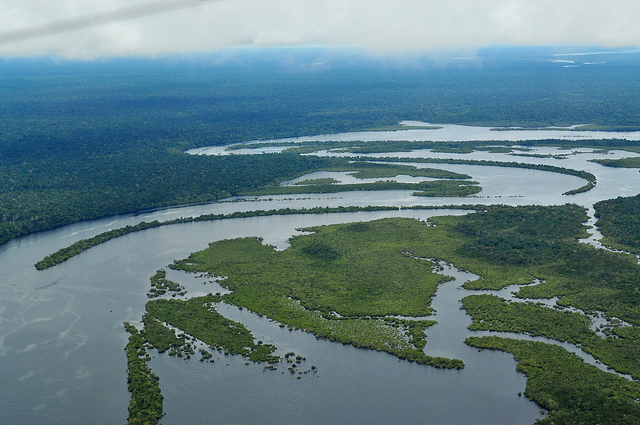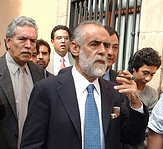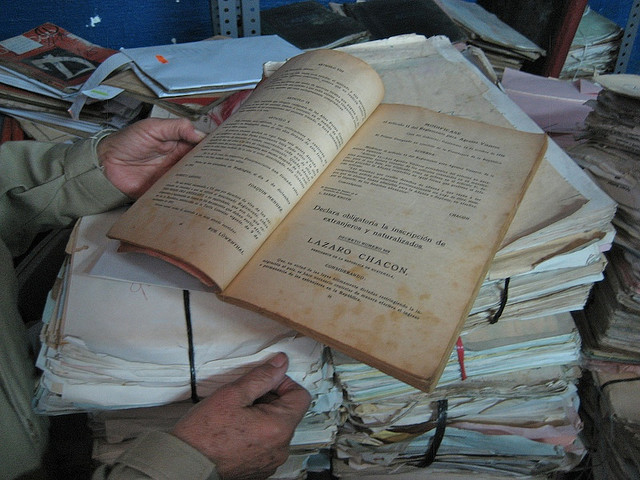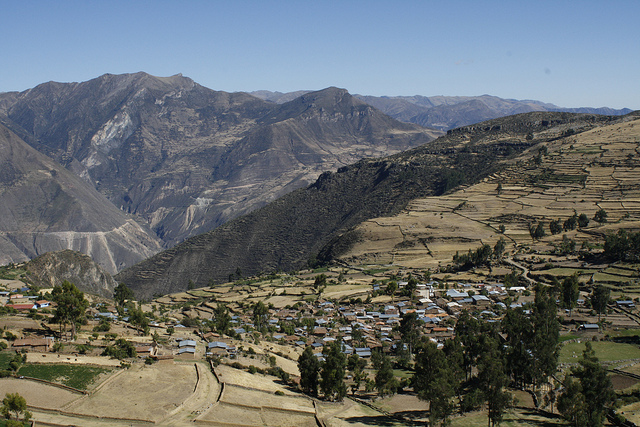
Blog, Latin America: Week in Review
Brazilian Senate Loosens Restrictions on Amazon Deforestation
December 7, 2011 By Staff
Today in Latin America
Top Story — The Brazilian Senate on Tuesday overwhelmingly approved revisions to the country’s Forest Code, allowing farmers in the Amazon to cut down a larger percentage of trees on their land. The bill, which would also suspend fines for illegal deforestation that occurred before 2008 and redefine the type of land that can legally be cleared, must still be re-approved by Brazil’s lower house and will go before Brazilian President Dilma Rousseff for final approval. On Monday, Brazil’s National Institute for Space Research said satellite images of the Amazon showed that annual deforestation had reached its lowest recorded level since 1988, when the institute began tracking rainforest destruction. Although Brazil’s agriculture lobby has praised the proposed legislation, with one senator calling it an end to an “environmental dictatorship”, environmental groups say the revised law will encourage illegal deforestation and lead to erosion, pollution, and damage to plant and animal life. Rousseff said during her presidential campaign that she would veto any legislation that provides amnesty for illegally cleared Amazon forest, but she is expected to sign the bill.
Read more from the AP.
Headlines from the Western Hemisphere
North America
- Owners and inspectors of Monterrey’s Casino Royale have been cleared of criminal negligence in the firebombing that killed 52 people last year.
- The U.S. Justice Department said that a 24 year-old American convicted of drug trafficking in Mexico was tortured by authorities. He has since been released.
- A U.S. immigration judge ruled that an Argentine woman who overstayed her visa should not be deported back to her country because she is part of a same-sex couple.
- A Mesoamerica Project summit held in Mérida, Mexico, called on the U.S. to reduce drug consumption.
Caribbean
- Puerto Rico’s Senate approved a provision that could eliminate LGBT individuals from anti-hate crime protections in revisions to the penal code.
- Haitian cholera victims filed a 37-page petition suing the United Nations for causing the devastating cholera outbreak in 2010 that has killed 7,000 people.
- Elián González, the child who was the subject of a major dispute between the U.S. and Cuba in 1999 when his mother drowned at sea en route to the U.S., has turned 18.
Central America
- Journalist Luz Marina Paz became the 17th journalist slain in Honduras since 2010 when she and a companion were killed Tuesday in Tegucigalpa by armed men on a motorcycle.
- The former sister-in-law of Guatemalan President Alvaro Colom remains at large after she was accused of involvement in an embezzlement scheme.
- Costa Rica is introducing development initiatives for its Caribbean coast to draw more tourists.
Andes
- Thousands of Colombians marched in major cities across the country Tuesday to protest the FARC’s killing of hostages last month.
- Peruvian authorities detained Wilfredo Saavedra and Milton Sanchez, leaders of the protest movement against the controversial Conga mine project, on Tuesday.
- A campaign by Ecuador to raise $100 million to preserve the Yasuni National Park by the end of 2011 has met its deadline.
- Venezuelan President Hugo Chavez said he was willing to negotiate with Exxon Mobil corp. to discuss the nationalization of Venezuelan oil.
- An 18 year-old was killed in Bolivia when he leapt into a piranha-infested river while drunk.
Southern Cone
- The British Foreign Office has protested that the Argentine coast guard and navy have been intercepting fishing vessels with UK licenses passing through Argentina’s “jurisdictional waters” off the disputed Falkland Islands.
- Chilean President Sebastían Piñera was harshly criticized Monday after he told a sexist and off-color joke at a meeting in Mexico.
- Argentine Finance Secretary Hernán Lorenzino will be Argentina’s next Economy Minister, replacing soon-to-be vice president Amadou Bodou.
Image: CIFOR @ Flickr.
Subscribe to Today in Latin America by Email






1 Comment
THE Brazilian Senate approved the proposed Forest Code revisions, which will change agricultural legislation and allow Brazil to continue as a leader in environmental preservation while maintaining high levels of agricultural exports. “It is undoubtedly the most restrictive and rigorous land-ownership legislation in the world,” said senator Kátia Abreu, president of the Brazilian Confederation of Agriculture and Livestock (CNA). “For example, the new code mandates that all rural Amazonian institutions must preserve 80% of their property as untouched land reserves.”
The CNA, which represents over five million Brazilian farmers, estimates that if the Forest Code revisions did not become law, Brazil could lose up to 20% of the land currently used for farming and livestock. “This could result in more expensive food, a rise in inflation and fewer jobs for Brazilians, as well as a decrease in exports and a significant drop in Brazil’s GDP.”
The CNA recognizes that the final text is not ideal, but it is the best outcome possible after a comprehensive democratic debate. “It is a step forward, especially given Brazil’s need to regulate food production and avoid deforestation,” said Senator Abreu.
Comments are closed.